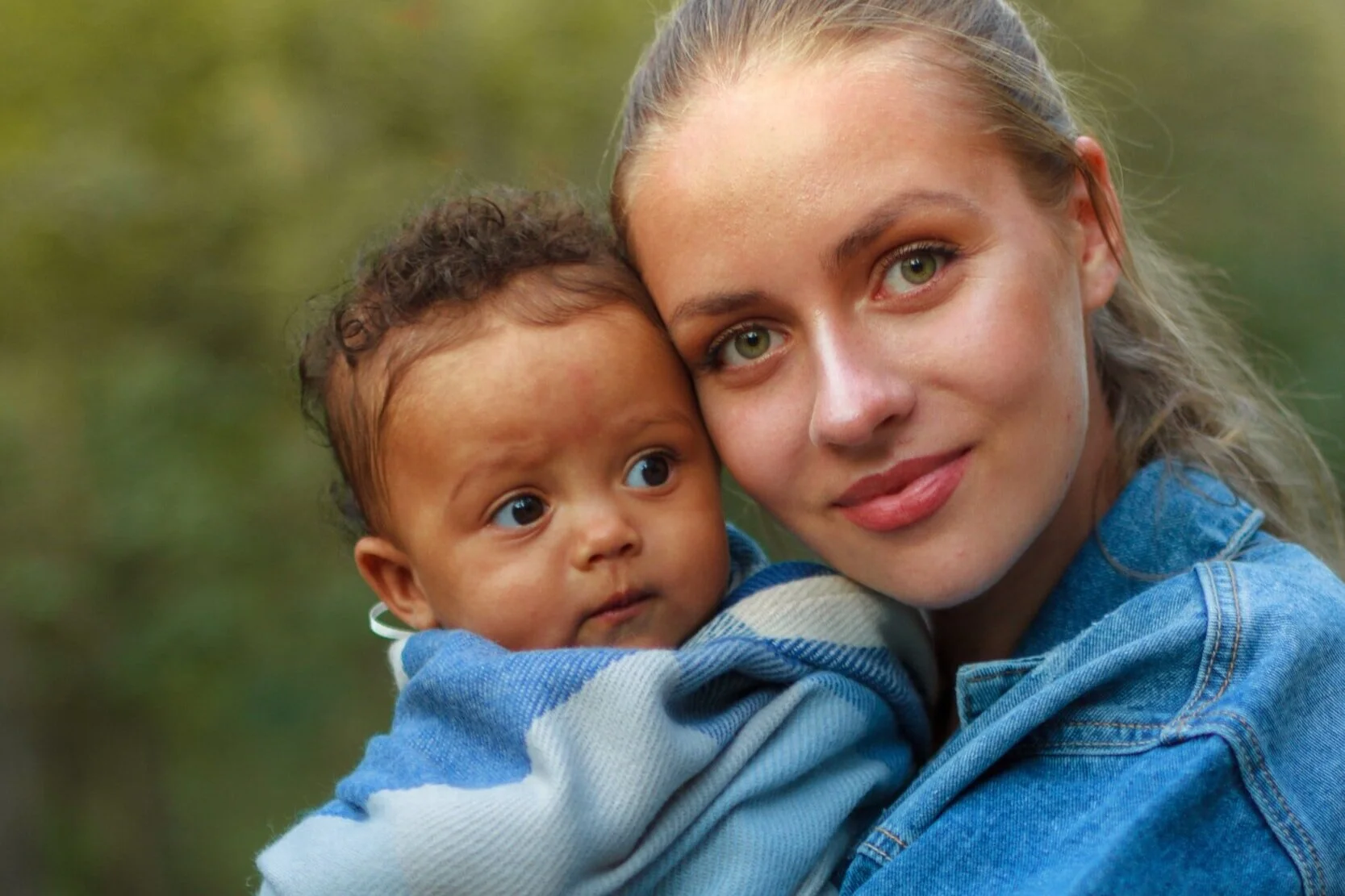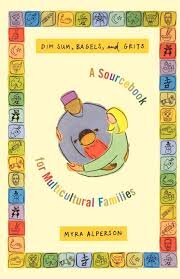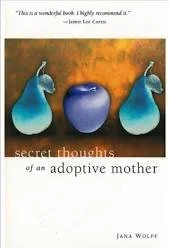If you’re a parent considering transracial adoption, you’re probably experiencing a whirlwind of emotions. On one hand, there’s the joy of growing your family—possibly after struggling with infertility or other setbacks. Expecting a child is hopeful and exciting! On the other hand, you may be feeling sorrow for your child’s first family and anxiety about how to effectively parent a child of another race. How can you help your child navigate a racist world? How can you teach your child about a culture that isn’t yours?
One benefit of adoption is that adoptive parents often have a lot of time to prepare for parenthood. It can be a long wait! If you’re waiting to meet your child, you can use that time to read up on the subject of transracial adoption. Today, I’ll be sharing 5 books that I’ve personally read and enjoyed as I learn more about adopting a baby of another race.
Who is This Book Recommendation List For?
This list focuses on books for white parents adopting Black infants or children. Most of the adoptions described are domestic infant adoptions, although a few books touch upon international or older child adoption. Although most books are geared toward adoptive parents, grandparents, relatives, and interested friends will find something of value in them, too.
I’ll share the pros and cons of each book (from my perspective) as well as who might benefit from giving it a try. I’ll also present these books in the order that I wish I’d read them—if you’re interested in learning more about transracial adoption, you can start with my first recommendation and move your way down the list.
#1. So You Want to Talk About Race, by Ijeoma Oluo
Although not an adoption book, this is a great start for any white person wanting to learn the stuff about race and racism that wasn’t covered in school. Ijeoma Oluo, a Nigerian-American author, talks about her experiences as a Black woman in a way that sounds almost as casual as a friend talking over coffee. Each chapter of the book is devoted to exploring a different issue, such as white privilege, cultural appropriation, or affirmative action.
The Pros: I wish this book were taught in schools. It’s a great introduction to concepts that might feel overwhelming or intimidating to talk about. Whereas other books about race and racism can feel very dry and academic, this one is easy to read. Oluo shares personal stories that bring the concepts to life, and there’s a lot of humor despite the heavy subject matter. One big takeaway of this book is to expect to make mistakes: trying to speak up and putting your foot in your mouth is better than never speaking up at all.
The Cons: If you have already done some work learning about race and racism, this book may be too introductory for you. I was hoping for a little more depth. Most of the discussions of race focus on interactions between white and Black people, which may not be as helpful if you’re wanting to learn about the experiences of other races. I would also have loved some more actionable advice on how to start conversations with my family, friends, and acquaintances.
#2. In Their Own Voices: Transracial Adoptees Tell Their Stories, by Rita J. Simon and Rhonda M. Roorda
If you are a hopeful adoptive parent, start here. This isn’t so much a book as it is a collection of interviews with adult transracial adoptees. If you don’t know adoptees in your personal life, it can be hard to find these kinds of first-hand experiences, which makes the book really valuable. The young adults interviewed for the book were also part of a study on what it’s like for kids to grow up with a family of a different race. The results of that study are shared and unpacked in the book. The book includes an even number of male and female interviewees, all of whom are Black or biracial and grew up with white parents.
The Pros: There are a lot of transracial adoption books out there, but most of them are written by white adoptive moms. It’s harder to find books that share other perspectives. Rhonda Roorda is a transracial adoptee herself. She writes not just as a researcher but as someone who personally knows what it’s like to grow up as a Black child in a white family. The adoptees she interviews come from all different types of families, so their experiences are different and interesting to read.
The Cons: This is not the most reader-friendly book. It has an academic writing style that makes it feel like a book you’d be assigned in a college class. The interviews were all conducted in the mid-90s, and the book hasn’t been updated since. The book shows its age in some places: all the adoptees were in closed adoptions, which is no longer the norm, and there’s a lot of ‘90s slang. I’d love to see a follow-up with more modern adoption stories!
#3. Dim Sum, Bagels, and Grits: A Sourcebook for Multicultural Families, by Myra Alperson
This is a good book for adoptive parents, but I think it might be an even better fit for grandparents or other family members who may not be doing as much research as a new mom or dad. Myra Alperson is a white, single mom to a daughter adopted from China. She shares stories from her own family’s experience trying to blend multiple cultures under one roof, and brings in quotes from other families, as well. There’s a lot of direct advice about how to honor a child’s birth culture in your day-to-day life.
The Pros: This is a quick and easy read, which is one reason why I think it’s a great option for non-parents who are curious about someone else’s adoption. I really enjoyed the passages from other adoptive families and adult adoptees. It was helpful to learn that adoptees may have different levels of interest in their birth culture throughout their lives, and that’s ok! There’s no need to force a child into cultural activities just because that’s what adoptive parents “should” do.
The Cons: Because the author adopted her daughter from China, this book isn’t quite as relevant for white families adopting Black children in the U.S. This book could also really benefit from an updated second edition. There are some really impressive, very detailed resource lists at the back for stores, websites, and book series that look amazing—but many of them no longer exist.
#4. Secret Thoughts of an Adoptive Mother, by Jana Wolff
As you can guess by the title, this is a memoir that offers a peek into the private thoughts of a transracial adoptive mom. I think this is most helpful for people considering transracial adoption and wondering what the emotional experience will be like for them. Very close friends or relatives might also enjoy it. Jana Wolff is the mother of a biracial son, and details her adoption process from infertility through her son’s early childhood. She also touches on some of the discoveries she made about subtle racism after her son was born.
The Pros: This book does a good job of covering the full range of emotions a person might feel when considering adoption: both the good and the not-so-good. If you’ve had any worries about bonding with your baby or any other aspect of adoption, you’ll probably feel validated by this story. It’s a quick read—I finished it in an afternoon. Moms may find this book especially helpful, because Wolff talks about the pressure society puts on women to get pregnant.
The Cons: I’ve seen some controversial reviews of this book online. Some people feel that Wolff is too cynical or harsh in the way she describes her adoption experience. I’ve even seen a few concerns that her son might read this someday, and feel uncomfortable with his mom’s less positive thoughts. Ultimately, this is one person’s very personal and individual story. You might see parts of yourself in it, but you probably won’t connect with the whole thing.
#5. In Their Voices: Black Americans on Transracial Adoption, by Rhonda M. Roorda
This is another book by Rhonda Roorda with a very similar title to book #2 on this list, so don’t get them confused! In this later book, Roorda interviews Black Americans who are somehow involved with or touched by transracial adoption. They aren’t adoptees, but they may be lawyers, social workers, teachers, or the adoptive parents or siblings of a Black child who was adopted by white parents. The interviews are organized based on age, and gives a lot of context for what was happening in Civil Rights as these interviewees grew up. Because it’s more in-depth, I’d recommend it for parents as opposed to other family.
The Pros: This might be the most informative book on this list. It manages to teach about racism, give perspective on the positives and negatives of adoption, and provide concrete “to-dos” for adoptive parents all in one book. Even though Roorda doesn’t shy away from the hard parts of adoption, she’s advocating for you, too. The final chapter of the book includes specific tips to connect your child to his or her culture, plus a list of further reading. Honestly, that last chapter is worth buying the book all by itself!
The Cons: Like the other books in this series, In Their Voices is very dry and a slow read. It’s written like an academic textbook, and not the kind of book you’ll breeze through in one sitting. Because this book isn’t from the perspective of an adoptee or a parent, it might feel a little less relevant if you’re just starting off in your adoption journey. But come back to it later—it’s worth it!
Mental Health Resources for Kids and Parents
No matter how your children join your family, sometimes kids need emotional support. There’s some research to suggest that adopted kids are more at risk for certain kinds of mental health struggles. If your child is dealing with anxiety or trauma symptoms, counseling can help both of you to navigate your child’s big feelings with less stress.
I’m a children’s therapist who works with children and tweens in the states of North Carolina, New York, and Florida. If you’re close to Davidson, North Carolina, you can stop by my office for a face-to-face session. Otherwise, I’m available for online therapy using a video conferencing platform.
Have any questions? Did you read one of the books on this list? I’d love to hear your thoughts. You can always reach out to me here, either to schedule an appointment or let me know what’s on your mind.






